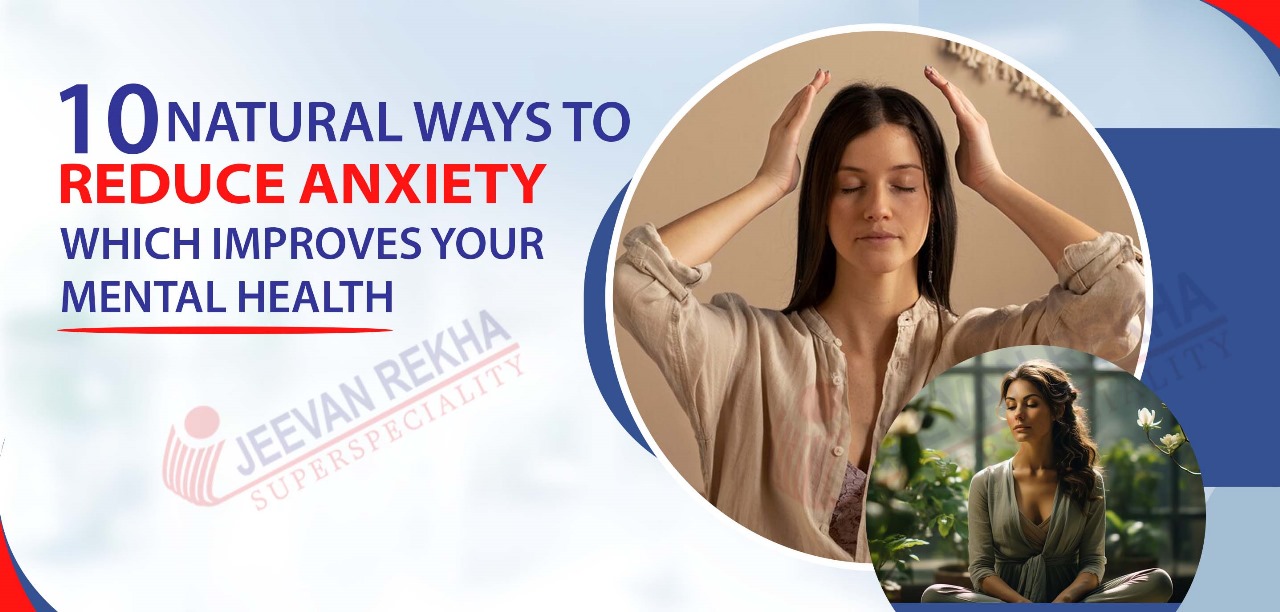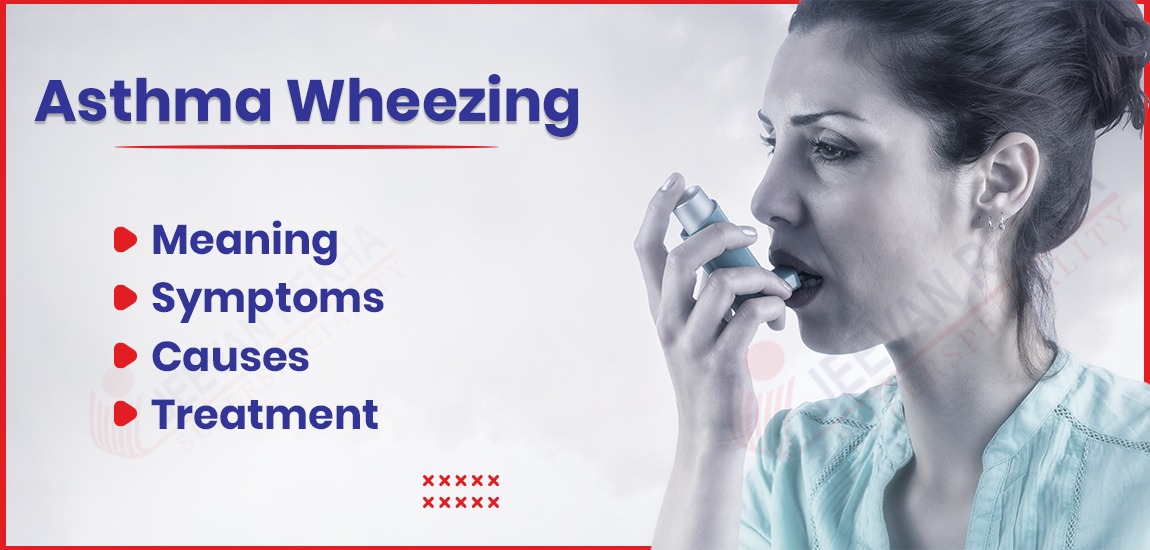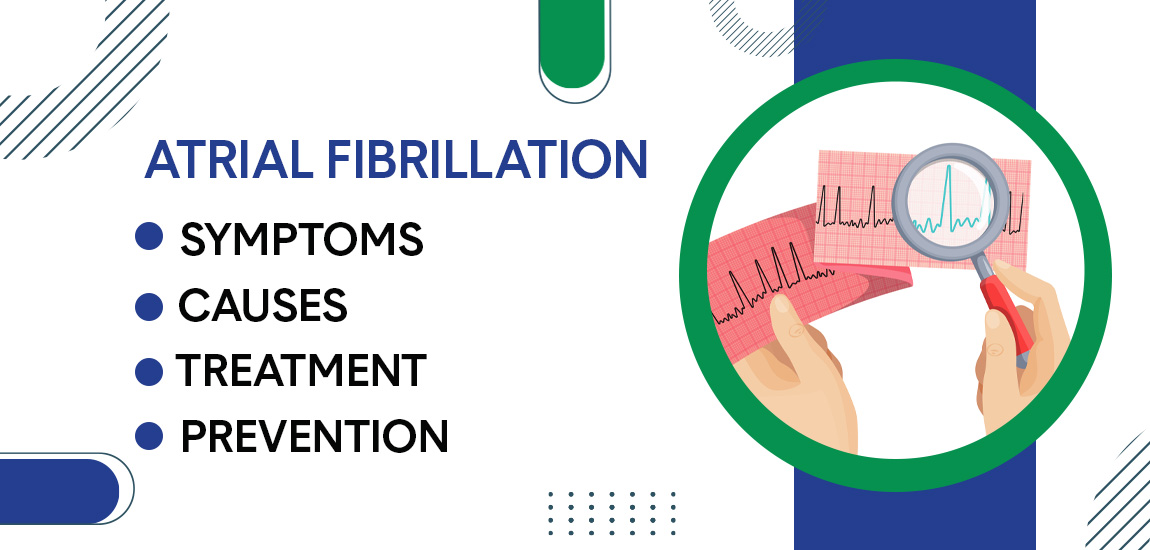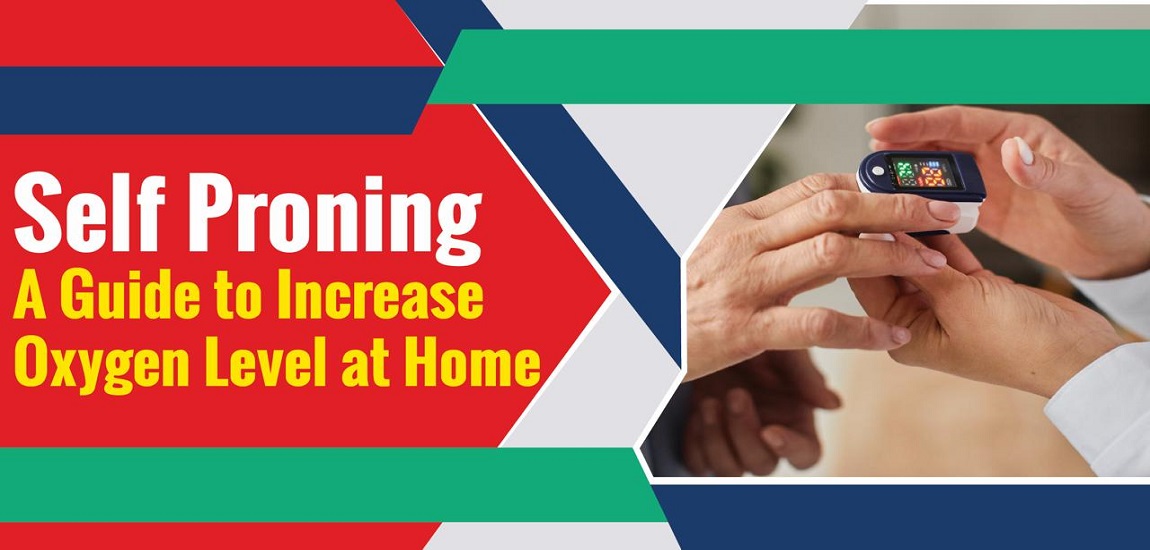
- By Admin
- In Health and Tips,
- Posted May 22, 2024
10 Natural Ways to Reduce Anxiety which Improves Your Mental Health
Discover 10 natural pathways to alleviate anxiety and cultivate mental well-being. Engage in regular physical activity to release endorphins and curb stress hormones, while deep breathing exercises and mindfulness techniques activate the body's relaxation response, easing symptoms of anxiety.
Moderate caffeine and alcohol intake to stabilize mood and enhance sleep quality, and prioritize sufficient rest to boost cognitive function and resilience to stress. Embrace a balanced diet rich in nutrients to support brain health and reduce inflammation, and nurture social connections to foster emotional support and diminish feelings of isolation.
Immerse yourself in nature to reduce stress and elevate mood, and limit screen time to promote mindfulness and offline engagement. Finally, indulge in self-care practices like relaxation and hobbies to prevent burnout and nurture emotional well-being.
These natural strategies offer a holistic approach to managing anxiety while enhancing overall mental health and vitality.
What is Anxiety?
Anxiety, an inherent human reaction, arises in response to stressful situations or perceived threats. It's a feeling of fear or apprehension about what's to come, often accompanied by physical symptoms such as a racing heart, sweating, trembling, and difficulty concentrating. While it's normal to experience occasional anxiety, it becomes a problem when it's excessive, persistent, and interferes with daily activities.
Anxiety can manifest in various forms, including generalized anxiety disorder (GAD), social anxiety disorder, panic disorder, phobias, and separation anxiety disorder, among others. Each type has its own specific triggers and symptoms, but they all involve excessive worry and fear.
10 Natural Ways to Reduce Anxiety
Let’s dig deep into the 10 natural ways to reduce anxiety:
- Exercise Regularly: Physical activity can help reduce anxiety by releasing endorphins, which are natural stress-relievers. Strive to engage in moderate-intensity physical activity for at least 30 minutes on most days of the week.
- Practice Deep Breathing: Deep breathing exercises can activate the body's relaxation response, calming the nervous system and reducing anxiety. Try diaphragmatic breathing or progressive muscle relaxation techniques.
- Meditation and Mindfulness: Mindfulness meditation can help you stay present in the moment, reducing worry about the future. Spend a few minutes each day practicing mindfulness or meditation to cultivate a sense of inner calm.
- Limit Caffeine and Alcohol: Caffeine and alcohol can both exacerbate anxiety symptoms, so try to limit your intake of these substances. Opt for herbal teas or decaffeinated beverages instead.
- Get Adequate Sleep: Lack of sleep can increase anxiety levels, so prioritize getting enough rest each night. Aim for 7-9 hours of quality sleep by maintaining a consistent sleep schedule and creating a relaxing bedtime routine.
- Eat a Balanced Diet: Certain nutrients, such as omega-3 fatty acids and magnesium, may help reduce anxiety symptoms. Focus on consuming a well-balanced diet rich in fruits, vegetables, whole grains, lean proteins, and healthy fats.
- Connect with Others: Social support can be a powerful antidote to anxiety. Spend time with friends and loved ones, join a support group, or engage in activities that foster connections with others.
- Spend Time in Nature: Spending time outdoors in nature can have a calming effect on the mind and body. Take a walk in the park, go for a hike, or simply sit outside and enjoy the sights and sounds of nature.
- Limit Screen Time: Too much screen time, especially on social media or news websites, can increase feelings of anxiety and stress. Set boundaries around your screen time and prioritize activities that promote relaxation and well-being.
- Practice Self-Care: Engage in activities that bring you joy and relaxation, whether it's reading a book, taking a bath, listening to music, or practicing a hobby. Allocating time for self-care can contribute to the reduction of stress and anxiety levels.
How it helps to get rid from mental health
Natural approaches to improving mental health encompass a range of practices that foster well-being and resilience. Regular physical activity, such as exercise, releases endorphins and reduces stress hormones, promoting a sense of well-being.
Deep breathing exercises and mindfulness practices activate the body's relaxation response, helping to alleviate symptoms of anxiety and depression. Limiting consumption of caffeine and alcohol stabilizes mood and improves sleep quality, while ensuring adequate sleep enhances cognitive function and resilience to stress.
A balanced diet rich in nutrients supports brain health and reduces inflammation, contributing to better mental well-being. Social connections provide emotional support and reduce feelings of loneliness and isolation, while spending time in nature reduces stress and enhances mood.
Limiting screen time reduces anxiety and promotes mindfulness, fostering engagement in offline activities. Finally, practicing self-care through activities such as relaxation, hobbies, and self-expression prevents burnout and nurtures emotional well-being. These natural approaches collectively empower individuals to take an active role in managing their mental health and promoting overall wellness.
Final Words
At Jeevan Rekha Hospital, we recognize the importance of addressing mental health concerns through a holistic approach that encompasses natural methods alongside medical interventions.
By incorporating natural strategies such as regular exercise, mindfulness practices, healthy lifestyle habits, and social support into our patients' treatment plans, we aim to promote overall well-being and resilience.
Through these efforts, we strive to empower individuals to take control of their mental health and lead fulfilling lives. Our commitment to comprehensive care ensures that patients receive the support and resources they need to thrive physically, emotionally, and mentally.
Tags
Blog Search
Latest Posts
-
Dark Circles Under The Eyes: Causes, Home Remedies and Treatments
December 21, 2025 -
बर्ड फ्लू के लक्षण, कारण, उपचार और बचाव के उपाय जानें
December 04, 2025 -
Best Diet Plan for Menopause Weight Management
November 25, 2025 -
Pulmonary Fibrosis Treatment: Understanding Lung Scarring and Breathing Problems
November 21, 2025 -
Arrhythmia: Types, Causes, Symptoms, and Treatment
November 07, 2025




